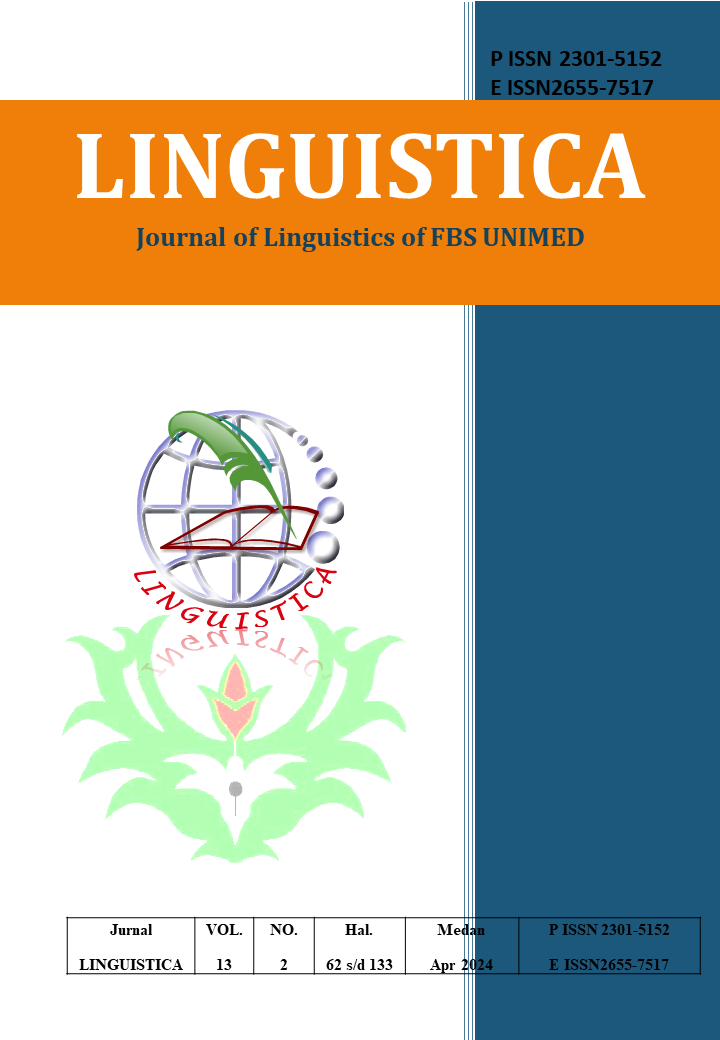ANTHROPOMORPHISM IN THE TALE OF BAYAN BUDIMAN
DOI:
https://doi.org/10.24114/jalu.v13i2.57913Abstract
This research analyzes the element of anthropomorphism in the classical Malay literary work entitled "The Tale of Bayan Budiman". Anthropomorphism is the attribution of human characteristics and behaviors to non-human entities, such as animals and natural phenomena. In this tale, the main character, a Bayan bird, is depicted as having the ability to speak, give advice, tell stories, and lead like a human. This research employs qualitative textual analysis methods to explore the representations of anthropomorphism in the narrative, dialogues, and descriptions of the text. The findings reveal that anthropomorphism is used to convey moral messages, stimulate the reader's imagination, and reflect the Malay worldview on the relationship between humans and nature. However, anthropomorphism can also obscure the essence and nature of different living beings, especially for child readers. This research contributes to the preservation of Malay literary heritage and provides a deeper understanding of the use of anthropomorphism in classical worksDownloads
Published
2024-05-05
Issue
Section
Articles
License
Copyright (c) 2024 ESSY SYAM, QORI ISLAMI ARIS, YESSI RATNA SARI

This work is licensed under a Creative Commons Attribution-ShareAlike 4.0 International License.
Authors who publish with this journal agree to the following terms:
- Authors retain copyright and grant the journal the right of first publication with the work simultaneously licensed under a Creative Commons Attribution License that allows others to share the work with an acknowledgment of the work's authorship and initial publication in this journal.
- Authors are able to enter into separate, additional contractual arrangements for the non-exclusive distribution of the journal's published version of the work (e.g., post it to an institutional repository or publish it in a book), with an acknowledgment of its initial publication in this journal.
- Authors are permitted and encouraged to post their work online (e.g., in institutional repositories or on their website) prior to and during the submission process, as it can lead to productive exchanges, as well as earlier and greater citation of published work (See The Effect of Open Access).
- This work is licensed under a Creative Commons Attribution-ShareAlike 4.0 International License.

